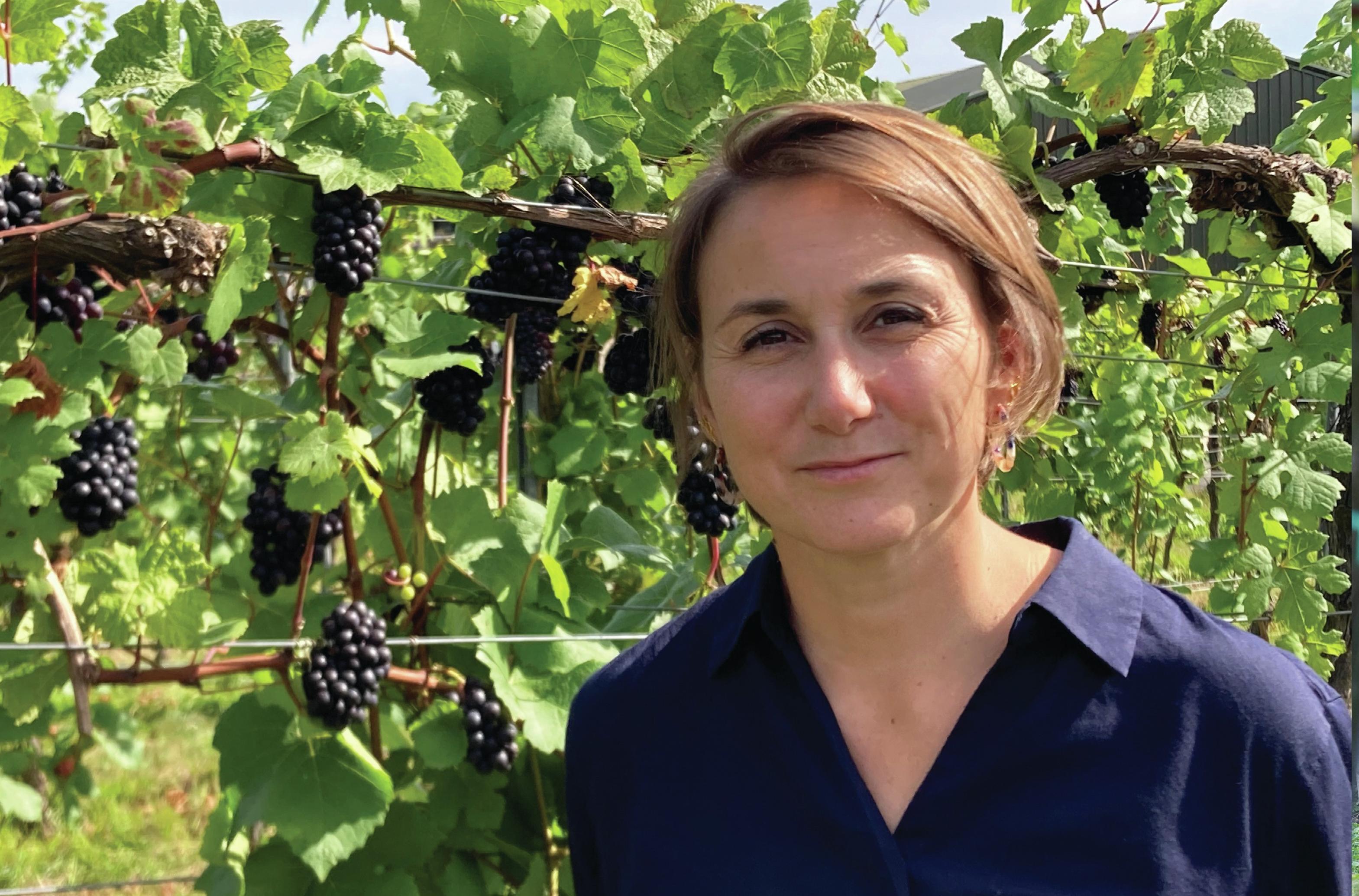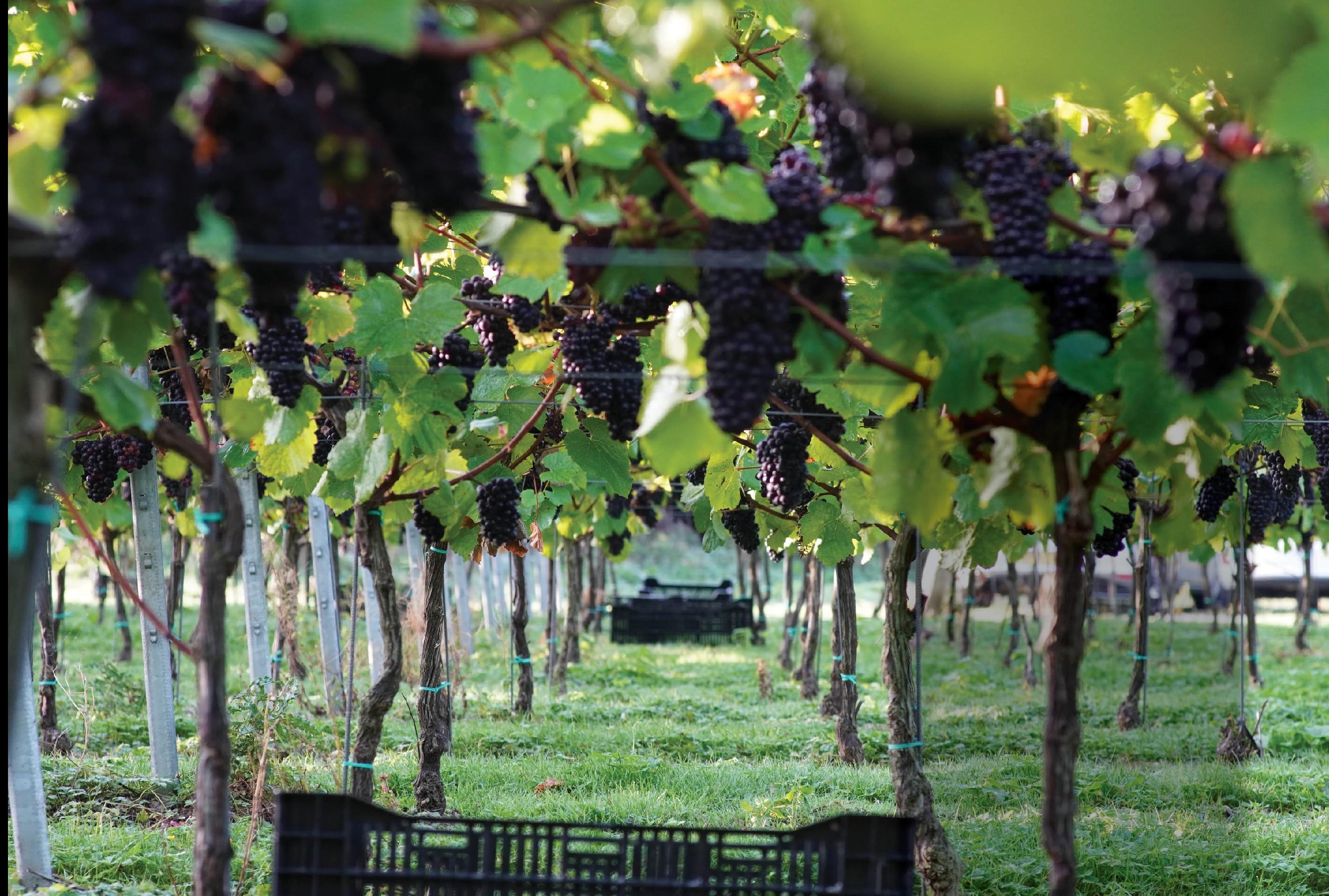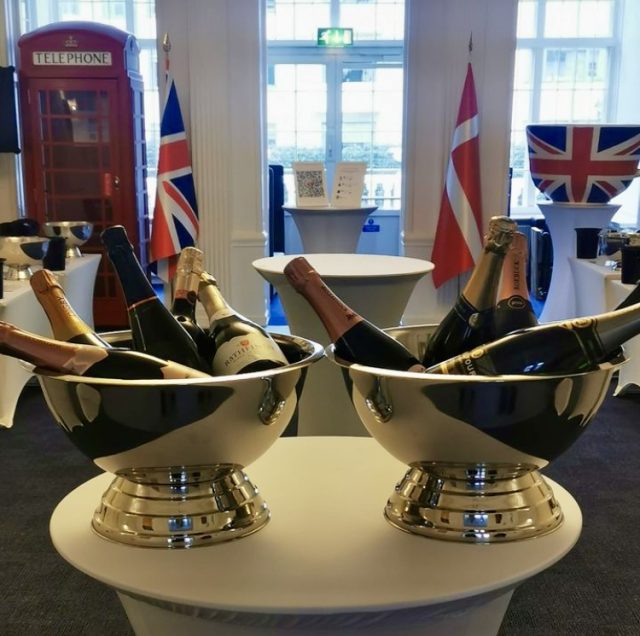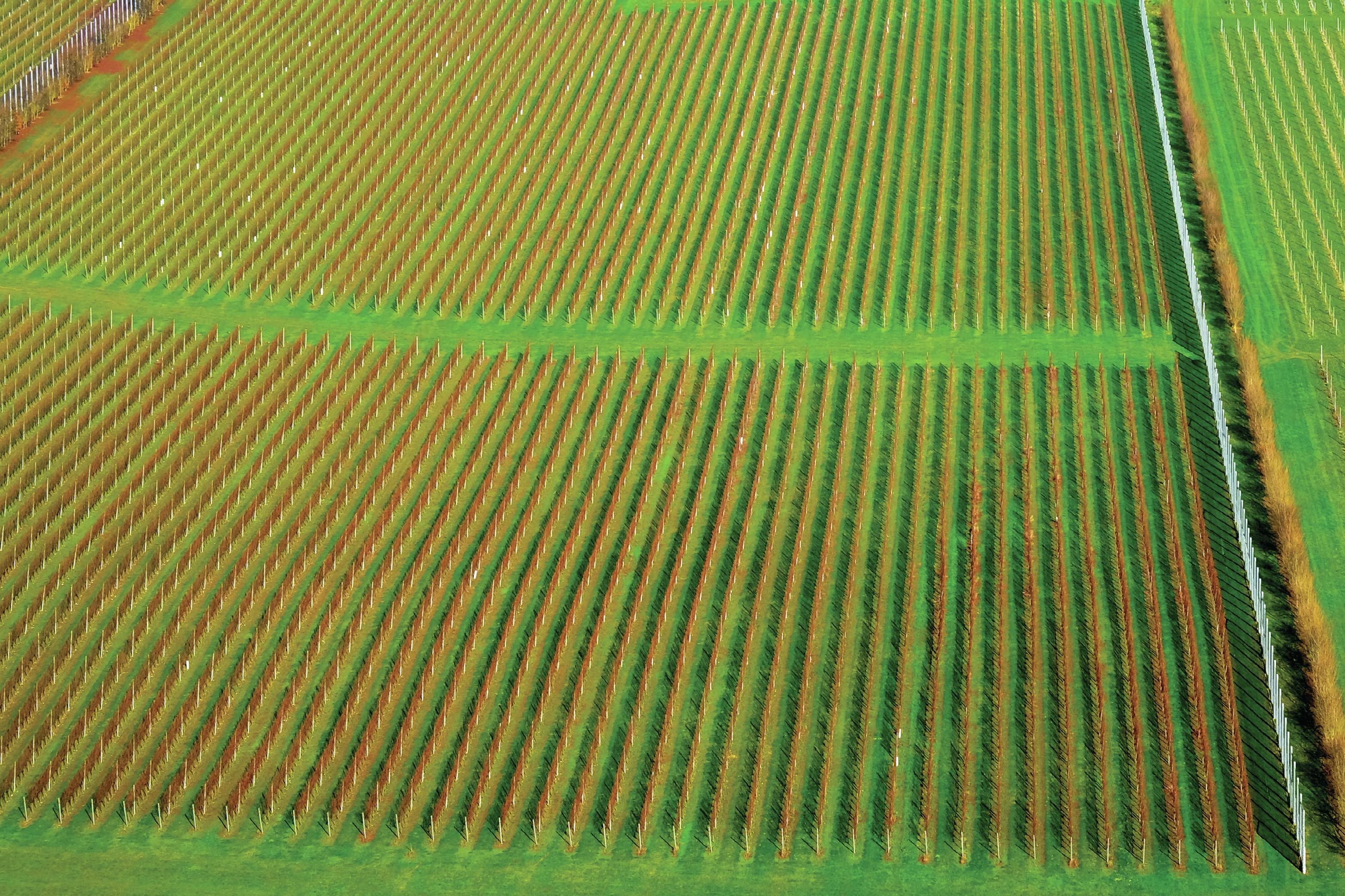This website uses cookies so that we can provide you with the best user experience possible. Cookie information is stored in your browser and performs functions such as recognising you when you return to our website and helping our team to understand which sections of the website you find most interesting and useful.
The Big Interview: Nicola Bates
Nicola Bates, CEO of WineGB, tells Sarah Neish about chaperoning the English wine industry into its third and arguably most critical stage.

JUST TWO months after accepting the top brass role at WineGB, Nicola Bates took custody of a rambunctious cocker spaniel puppy, which she jokes has already “replaced her in the family”, as a result of Bates now spending the majority of her time “either on a train with a laptop, or waiting at train stations”.
With more than 500 producer and grower members of WineGB spread across 32 English counties, 10 Welsh counties and two in Scotland, it’s little wonder Bates has become one of national rail’s best customers.
Getting out to meet winemakers across the UK has been part of her “baptism of fire” as she beds into her new role at the top of the trade body. The switch-up came following the decision by former WineGB boss Simon Thorpe to step down from the CEO position last May to become the managing director of specialist importer Thorman Hunt. Thorpe had only headed up WineGB for three years, and his departure left members of the UK wine trade scratching their heads.
London Wine Fair director Hannah Tovey told db at the time that “it was entirely critical” who the next person appointed to lead the English and Welsh wine body would be.
“Clearly, with the rapid growth of English wine, we need to see a direct correlation when it comes to its marketing and brand development,” Tovey said following Thorpe’s departure.
“Whoever is the very best at doing that should be the new head of WineGB.”
The best person for the job, it transpired, had spent the last five years defining and upholding the highest standards for marketing alcoholic beverages as the director of strategy and external affairs for regulatory body The Portman Group.
Bates is a breath of fresh air, not just in terms of offering a new perspective, but in encouraging members of the trade to confront outdated notions of what — indeed, who — the head of WineGB should be.

Not only is Bates the first female CEO of WineGB, she may also be the first chief exec to eschew advanced WSET qualifications in favour of strategy. She guiltily confesses that she gets excited by “management consultancy” and makes no bones about the fact that she has more to learn about wine.
“Yes, I’ve got the glorious job at WineGB, but I have more than 500 bosses [producer members], and they all know much more about wine than I do,” Bates tells the drinks business.
For many reasons, intricate wine knowledge was not the “first item on the list” for WineGB when recruiting the perfect candidate for the job. Instead, “understanding the political landscape” was paramount.
“First and foremost on the list of priorities is influencing government,” Bates says. And, having spent a vast chunk of her career hosting roundtables and events “and really martialling evidence” to lobby government on policy, as well as having run for parliament herself in 2010, she is well-equipped to make sure English wine stays top of the agenda.
According to Bates, there is “a huge amount of goodwill” at Westminster for English and Welsh wine.
“The door is very much open to walk through, probably more so than in any other capacity I’ve worked in,” she says.
However, rather than debating the merits of reintroducing pint-sized bottles of Champagne and sparkling wine (more on that later), she wants to solve real, tangible issues that impact “a wider percentage of our members”.
Take broadband access, for example. No, really, take it. It’s terrible.
“Many of our members are based in various different parts of a rural, agricultural economy,” Bates says. “And the number of times that our members’ internet crashes while they’re on a call is ludicrous.”
She admits that she doesn’t yet know whether broadband access is “a number three problem on the list, or a number 30 problem”, but she intends to find out.

Back to those pints of Champagne. In January, Bates issued a statement championing the government’s decision to permit the return of this imperial measure, a favourite of former Prime Minister Winston Churchill. She affirmed that WineGB welcomed “the chance to be able to harmonise still and sparkling bottle sizes” and asserted that the pint measure would allow “greater choice for UK producers within the domestic market”.
Speaking to db, Bates stresses that the word doing the heavy lifting in that sentence is ‘choice’.
“I don’t know of any English producers that are about to push the button on a pint-sized bottle, and it’s unclear how much of a market there would be for it. I suspect there might be some consumers out there who would love to celebrate at some point with a pint of sparkling wine. And, equally, there will be some producers who want to cater to them,” she says diplomatically.
In fact, Bates is more concerned with the potential hurdles that could come with recycling pint-sized bottles.
“If we do go ahead, we need to make sure that producers, and therefore consumers, aren’t being penalised, because costs will have to be reclaimed within a system,” she says, referring to the additional costs that might come with recycling a non-standard-sized glass bottle; extra fees which will inevitably end up being passed on to the consumer via a higher recommended retail price for that bottle.
Whether or not consumers want to buy a pint of English sparkling is one matter, whether they are prepared to pay a premium for it is quite another.

The numbers game
Bates’ ability to plug into the numbers was WineGB’s second key consideration when searching for a new leader – it needed someone who could wrangle a budget. She intends to streamline funds at the trade body, starting with membership fees.
“WineGB needs to provide the right services at the right price for its members, so that ultimately people feel they are paying for something useful,” she says. At present, Bates explains, there are “about 27 different ways of being a member”, with fees starting “at a couple of hundred pounds and going all the way up to five digits”, determined by the size of the producer, both in volume terms (how many annual bottles made) and hectarage planted.
“The question is whether [the differing membership] is fair and appropriate,” she says meaningfully.
She’s right to tighten the nuts and bolts ahead of what could prove to be the most transformational chapter yet for the English wine industry. At the time of her appointment, Bates pointed out that the English and Welsh wine sector “will soon face the challenges that come with its success”.
So how does she plan to meet these challenges?
Bates highlights the ‘s-curve’ of any growing market, which she says is made up of three stages. First comes the ‘pioneer ’ stage. In terms of English wine, this was “when we were growing an awful lot of German grapes”, she says. “You could say that it was anything up to [the establishment of] Nyetimber,” Bates adds, after which point the English wine industry entered its second phase –‘expansion’. “We’ve been going through this stage for some years,” Bates explains.
As we hurtle through 2024, the English wine trade is moving into the last phase of the curve — “maturity”. This is loosely defined as a period in which “regulation becomes a more pressing concern, as do issues relating to reputation and protection”, Bates explains. It makes sense, then, that WineGB would pluck a leader from The Portman Group, whose very raison d’être is to safeguard industry standards.
If one were to draw a Venn diagram between the two roles, the biggest crossover Bates has found so far relates to the conversation around creating a PDO for English wine.
The discussion is all about “anticipating the need to define the quality of an English wine product”, she says. “My time at The Portman Group focused on what info a consumer takes away from looking at a bottle, or a can, or whatever. The idea of a PDO is actually quite close to this. Will consumers understand the phrase ‘PDO’ on a back label? And are we able to imbue a PDO with the right meaning and criteria that will stand the test of time? I don’t think UK consumers understand the term yet, but it’s critical that we get it right.”

Wine tourism
As well as supporting WineGB members from a marketing standpoint, Bates is keen to look at another area undergoing astronomical growth in the UK – wine tourism.
She reveals that a free training programme for producers on the subject of wine tourism will launch “very soon”, in association with Visit England, based on a an earlier successful initiative implemented by Wine Australia.
“The English wine industry has a huge advantage, having watched what the likes of Australia and New Zealand – and by that I mean markets that have matured in the last 20 or 30 years – have done, and looking and learning from their mistakes,” she says. “It means we should be able to run down the path to success an awful lot faster.”
Another vital concern is who, exactly, will be running those miles? According to WineGB’s latest industry report, there are currently around 2,300 employees working in English and Welsh wine.
“By 2040 we anticipate this will be more like 30,000, which is a huge leap,” Bates says. “Who are these employees? Where are they going to come from?”
It’s one of the reasons Bates is so keen to nurture WineGB’s relationship with Plumpton College, one of the key providers of wine education in the UK.
“A big question we need to ask ourselves is ‘what do we need from education in order to mature the English wine market?’” she says.
As for what English winemakers will be producing by the year 2040, the latest WineGB report shows that Chardonnay, Pinot Noir and Pinot Meunier currently account for around 70% of total plantings, with hybrid varieties making up 10%.
“Our latest insights show that production is currently around two-thirds sparkling to one-third still wines,” Bates says, with still wine expected to increase further.
She is especially excited by the future potential for still English Pinot Noir.
“Because of the way Pinot Noir grows in this country, it has a different depth that transcends some of the more traditional Pinots from around the world,” Bates explains.
When asked how likely it is that we might one day see an English Pinot Noir alongside global expressions of that noble variety on La Place de Bordeaux, Bates says with a twinkle in her eye: “Wouldn’t that be fantastic…?”
Read db’s interview with ex-WineGB boss Simon Thorpe here, where he discusses English wine being much more than “a one-trick pony” and the difficulty of buying land to plant vines in England.

